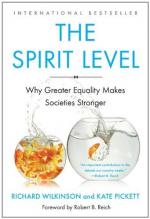|
This section contains 4,233 words (approx. 15 pages at 300 words per page) |

|
The proposition "A and B are equal" may be descriptive or normative, but in either case it is incomplete without a statement of the respects in which the objects or persons compared are deemed to be equal. In instances where this appears not to be so, either the context supplies the complement or the comparison is of pure quantities, as in pure mathematics. Two objects equal in weight, or height, or value may be unequal in other respects; apart from the abstractions of mathematics and logic, no two objects could ever be said to be equal in all respects, only in all relevant respects.
Correspondingly, to say that two candidates are equal in merit would usually mean that with respect to their performances in some understood competition or examination, they deserve to be treated alike; it does not rule out treating them...
|
This section contains 4,233 words (approx. 15 pages at 300 words per page) |

|


